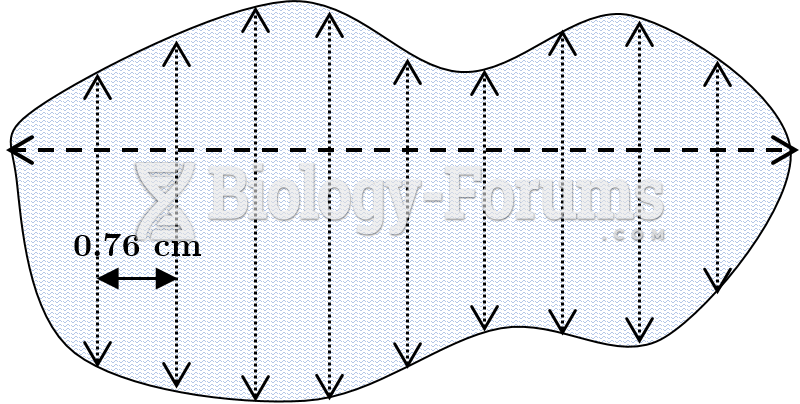|
|
|
Bisphosphonates were first developed in the nineteenth century. They were first investigated for use in disorders of bone metabolism in the 1960s. They are now used clinically for the treatment of osteoporosis, Paget's disease, bone metastasis, multiple myeloma, and other conditions that feature bone fragility.
The most destructive flu epidemic of all times in recorded history occurred in 1918, with approximately 20 million deaths worldwide.
To maintain good kidney function, you should drink at least 3 quarts of water daily. Water dilutes urine and helps prevent concentrations of salts and minerals that can lead to kidney stone formation. Chronic dehydration is a major contributor to the development of kidney stones.
Malaria mortality rates are falling. Increased malaria prevention and control measures have greatly improved these rates. Since 2000, malaria mortality rates have fallen globally by 60% among all age groups, and by 65% among children under age 5.
Human kidneys will clean about 1 million gallons of blood in an average lifetime.
 Developmental steps in the maturation of Tasmanian devil young. The diagonal lines indicate the amou
Developmental steps in the maturation of Tasmanian devil young. The diagonal lines indicate the amou
 Some scholars regard Walt Whitman as a poet of nature, and others, a poet of the body—a reference to
Some scholars regard Walt Whitman as a poet of nature, and others, a poet of the body—a reference to




